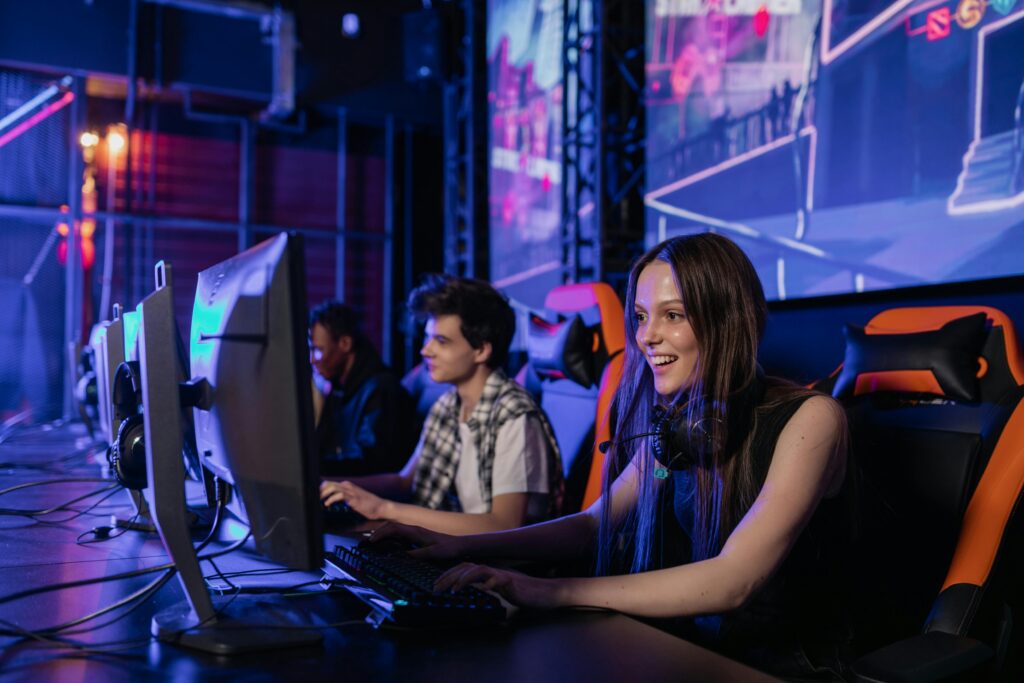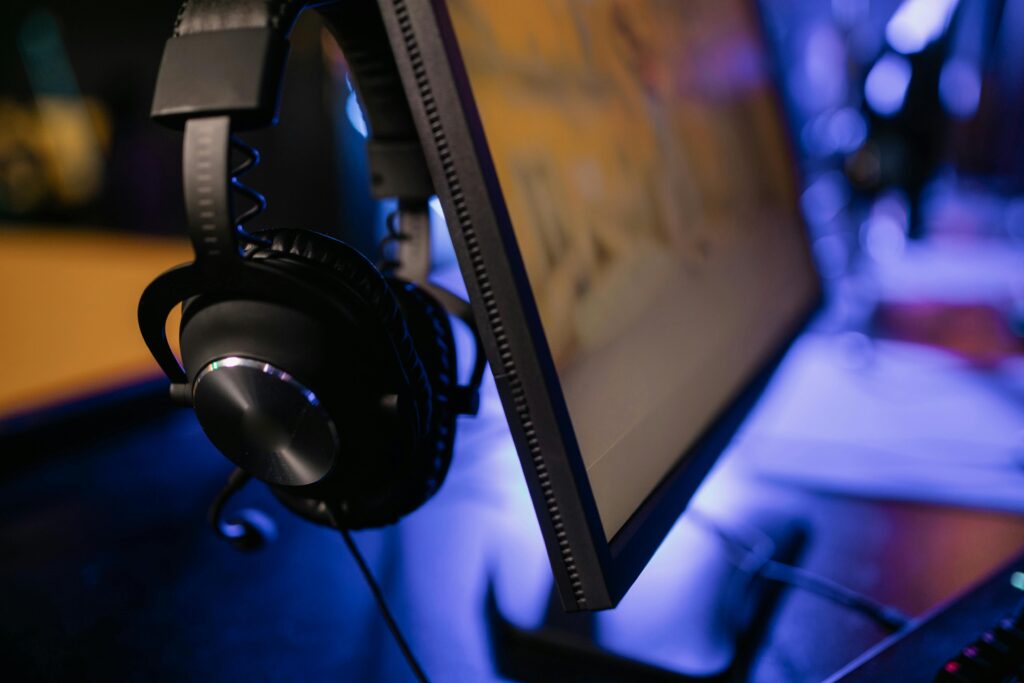Gaming laptops attract many enthusiasts seeking high performance on the go. However, they often have significant drawbacks. Issues like overheating and limited upgradeability can hurt the overall gaming experience.
Recent studies show that gaming laptops can get too hot during long games. This makes their CPUs and GPUs slow down to avoid overheating. Some laptops use cheap materials, which makes them less durable. These points highlight the importance of checking specs and user reviews before buying.
Despite these issues, the gaming laptop community thrives on forums and social media. Users share their experiences and recommendations. Gamers connect to talk about how games perform and how they feel while playing. This helps them feel like they belong. They share tips on improving their setups and help each other pick the right gear.
Overheating Issues make gaming laptops bad
With all those components packed tightly inside the chassis, a primary issue that is associated with most laptops is overheating. While in game mode the processor and, in particular, the graphics card of the laptop has a lot of work. This creates a lot of heat. Most of the laptops have a poor cooling mechanism. As a consequence, they can heat to extremely high temperatures. When a laptop becomes hot it is likely to experience sluggish operation. This is called throttling

Causes of Overheating in Gaming Laptops
- Insufficient Cooling: Inadequate airflow or blocked vents can prevent heat from dissipating effectively.
- Overclocking: Pushing components beyond their rated limits can generate excessive heat.
- Dust Accumulation: Dust can clog fans and heat sinks, hindering cooling performance.
- Defective Cooling Components: Faulty fans, heat sinks, or thermal paste can lead to overheating.
- Hardware Failures: Malfunctioning components can generate excessive heat or prevent proper cooling.
- Software Issues: Inefficient software or malware can strain system resources and cause overheating.
Symptoms of Overheating in Gaming Laptops
- Frequent Crashes: Overheating can cause system instability and crashes.
- Slow Performance: High temperatures can reduce system performance and responsiveness.
- Noise: Fans running at high speeds to compensate for overheating can be noisy.
- Physical Signs: Components may feel hot to the touch or emit a burning smell.
Prevention and Solutions
- Regular Cleaning: Clean out dust from fans, heat sinks, and other components.
- Adequate Airflow: Ensure proper airflow by keeping case vents clear and using fans effectively.
- Proper Cooling Components: Use high-quality fans, heat sinks, and thermal paste.
- Monitor Temperatures: Use software to monitor system temperatures and identify potential issues.
- Avoid Overclocking: Unless necessary, avoid overclocking components to reduce heat generation.
Poor Battery Life
Another issue is battery life. Gaming laptops need a lot of power to run demanding games. Most laptops do not last long on a single charge. You might get only a few hours of playtime before needing to plug it in. This means you can’t play games away from an outlet for long.
Causes of Poor Battery Life
- Aging: Batteries naturally degrade over time, leading to reduced capacity and shorter lifespan.
- Excessive Use: Frequent charging and discharging can accelerate battery wear and tear.
- High-Intensity Tasks: Running demanding applications or games can drain the battery more quickly.
- Improper Charging Habits: Charging the battery to 100% or leaving it plugged in for extended periods can shorten its lifespan.
- Extreme Temperatures: Exposure to extreme heat or cold can damage battery cells and reduce capacity.
- Hardware Issues: Faulty components or software glitches can interfere with battery performance.
Symptoms of Poor Battery Life
- Rapid Battery Drain: The battery discharges quickly, even when the device is not in use.
- Frequent Recharging: You need to charge your device more often than usual.
- Slow Charging: The battery takes longer than usual to charge.
- Sudden Shutdown: The device shuts down unexpectedly due to low battery.
Tips for Improving Battery Life
- Manage Apps: Close unused apps and limit background activity to reduce battery consumption.
- Avoid Extreme Temperatures: Protect your device from extreme heat and cold.
- Proper Charging Habits: Charge the battery to 80-90% and avoid leaving it plugged in for extended periods.
Heavy and Bulky
Desktop replacements are generally big and thick. To accommodate such parts they have to be larger than standard laptops because those components are often so powerful. You feel tired when you have to lug around a heavy laptop. If you intend to carry your gaming laptop along with your other travel essentials you may require a special bag for that. Every traveler has to struggle to squeeze a heavy laptop into his or her backpack.
Limited Upgrade Options in Gaming Laptops
A downside of gaming laptops is that often such notebooks allow for few upgrade possibilities. However, as compared to normal laptops and desktops, where one can add or remove components such as graphics cards or RAM at will, laptops are not upgradeable. Certain parts such as the CPU and the GPU can for instance be fused onto the motherboard.
Pricey
One of the most important factors about gaming laptops is that they come at a very premium price. You get to pay a higher cost when it comes to portability. Although there are some relatively affordable models, all good laptops are very expensive. Some gamers discover that for the same amount of money, they can obtain better performance on a desktop. Desktops let you decide what components to put in your machine and you can change those components later on. This means you can probably save money in the long run.
Sound and Heat of Gaming Laptops
Gaming laptops can be noisy. To cool the laptop while playing the games, the fans revolve around as the jargon suggests. This can generate a lot of noise, which is not desirable or desirable. If you find yourself gaming at night or in relatively silent surroundings this can be quite irritating. Also, using the laptop on your lap can make it quite hot, which is rather unpleasant if you’re going to spend a few hours gaming.
Display Quality
Most laptops do come with high refresh rates and resolution features but not all of them do. Lower-cost models are known to have a Low Contrast ratio and hence the screen does not display colors appropriately. Games can look less appealing as a result of this. Also, storage options types can be incompatible with your gaming mode and smaller screens can also hinder the gaming experience.
Limited Performance Compared to Desktops
The best laptops can still be outperformed by desktops on occasion as well. Desks allow for more spacious and potent hardware installation. They also can have superior cooling solutions, which lets to work at high speeds and without temperature spikes. If you intend to cater for new-generation games at high graphical quality, then go for a desktop. This is more so particularly for games that put a lot of strain on the hardware in question.
Software and Bloatware Issues
As is often the case with targeted laptops, many laptops have useless software installed that borders on bloatware. The disadvantage of using this particular software is that it can slow down the operating system of your laptop and occupy disk space. Some of which might not be required in gaming at all. In most instances, this might mean investing some time uninstalling programs you may not require.
Comfort and Ergonomics
Gaming for a long time is rather uncomfortable. Laptops designed for gaming generally are not ergonomic laptops. Both the keyboard and trackpad may be uncomfortable to touch and feel. This can cause a great deal of stress on your wrists and hands in particular. That is why it is more important for desktops perhaps having better keyboards and mice for comfortable use during gaming duration.
Conclusion
Therefore, as it meets its purpose, different aspects of laptops are unfavorable to your gaming aspects. They are less attractive due to the problem of overheating, poor battery life, and restrictions on upgrading. They also tend to be bulky, and expensive and do not necessarily offer the best performance, relative to their desktop counterparts. If you desire to get the most about a gaming system then you would need to ask yourself if a gaming laptop is right for you. To most gamers, a desktop may prove better for performance, comfort, and worth. Despite the sleek design, there are lots of factors that show that laptops are not the most ideal, especially for gaming.

